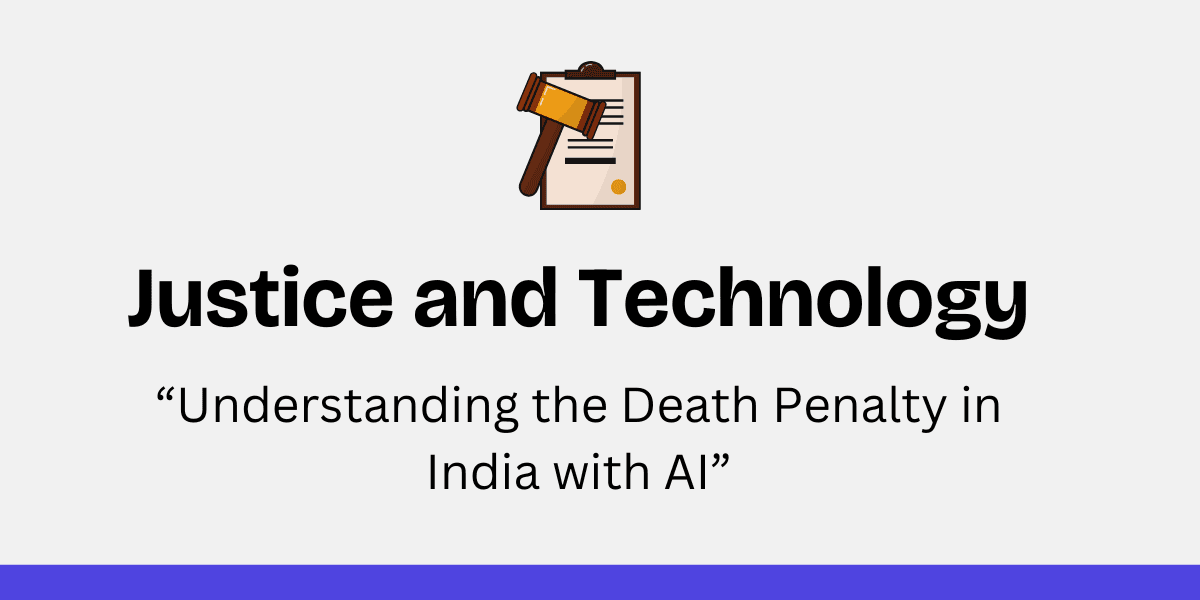Recently, during the inauguration of the National Judicial Museum and Archive, Chief Justice of India (CJI) D.Y. Chandrachud posed a significant question to an AI lawyer: "Is the death penalty constitutional in India?" The AI's response was clear: Yes, the death penalty is constitutional in India, but it is reserved for the 'rarest of rare cases.' This interaction has sparked renewed discussions about the death penalty's place in Indian law and its implications for justice.
Understanding the Constitutional Basis
The death penalty in India is governed by various laws, including the Indian Penal Code (IPC) and specific statutes like the Narcotic Drugs and Psychotropic Substances Act, 1985. The Supreme Court has established that while the death penalty is constitutional, it should only be applied in exceptional circumstances where the crime is particularly heinous. This principle was articulated in the landmark case of Bachan Singh v. State of Punjab (1980), where the Court emphasized that the death penalty should be reserved for the "rarest of rare" cases.
Key Legal Provisions
- Indian Penal Code (IPC): Certain offenses under the IPC, such as murder, can attract the death penalty.
- Narcotic Drugs and Psychotropic Substances Act, 1985: This law prescribes the death penalty for repeat offenders involved in serious drug-related crimes.
- Bharatiya Nyaya Sanhita, 2023: This recent legislation also includes provisions for the death penalty in cases of murder.
Judicial Oversight
The application of the death penalty is subject to rigorous judicial scrutiny. Courts must consider various factors, including the nature of the crime, the circumstances surrounding it, and the character of the offender. This ensures that the death penalty is not imposed arbitrarily and aligns with the principles of justice and human rights.
The Role of AI in Legal Discourse
CJI Chandrachud's interaction with an AI lawyer highlights the growing role of technology in the legal field. AI can assist legal professionals in various ways:
- Research and Analysis: AI can quickly analyze vast amounts of legal data, helping lawyers find relevant case laws and statutes.
- Drafting and Documentation: AI tools can assist in drafting legal documents, ensuring compliance with current laws and regulations.
- Legal Education: AI can serve as a resource for law students and professionals, providing insights into complex legal issues.
How LawSimpl.ai Can Help
LawSimpl.ai is at the forefront of integrating AI into legal practice. Here’s how it can benefit professionals:
- Instant Legal Information: Access to up-to-date legal information and interpretations, including constitutional queries like the death penalty.
- Document Automation: Streamlining the drafting process for contracts, agreements, and legal notices, reducing time and effort.
- Case Law Research: Efficiently searching for relevant judgments and legal precedents, enhancing the quality of legal arguments.
- Compliance Assistance: Helping businesses and individuals understand and comply with various legal requirements.
Conclusion
The question of the death penalty's constitutionality in India remains a complex and sensitive issue. CJI Chandrachud's engagement with AI reflects a broader trend towards embracing technology in the legal field. As legal professionals navigate these challenging waters, tools like LawSimpl.ai can provide essential support, ensuring that they remain informed and effective in their practice.
For more insights and updates on legal matters, stay connected with LawSimpl.ai, where technology meets law for a better tomorrow.
